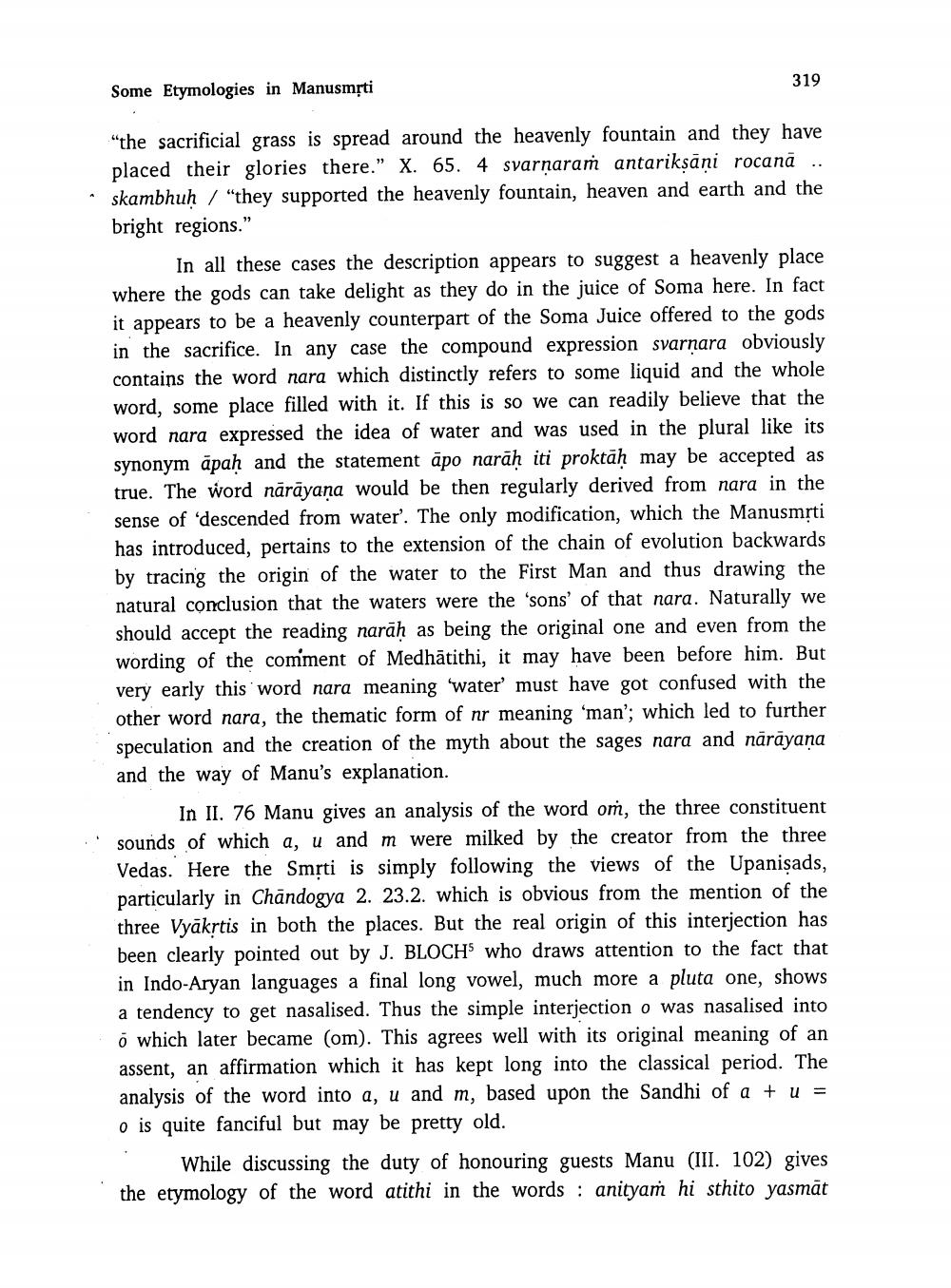________________
Some Etymologies in Manusmộti
319
"the sacrificial grass is spread around the heavenly fountain and they have placed their glories there.” X. 65. 4 svarnaram antariksāņi rocana skambhuḥ / "they supported the heavenly fountain, heaven and earth and the bright regions."
In all these cases the description appears to suggest a heavenly place where the gods can take delight as they do in the juice of Soma here. In fact it appears to be a heavenly counterpart of the Soma Juice offered to the gods in the sacrifice. In any case the compound expression svarnara obviously contains the word nara which distinctly refers to some liquid and the whole word, some place filled with it. If this is so we can readily believe that the word nara expressed the idea of water and was used in the plural like its synonym āpaḥ and the statement āpo narāḥ iti proktāḥ may be accepted as true. The word nārāyana would be then regularly derived from nara in the sense of 'descended from water'. The only modification, which the Manusmrti has introduced, pertains to the extension of the chain of evolution backwards by tracing the origin of the water to the First Man and thus drawing the natural conclusion that the waters were the 'sons' of that nara. Naturally we should accept the reading narāh as being the original one and even from the wording of the comment of Medhātithi, it may have been before him. But very early this word nara meaning 'water' must have got confused with the other word nara, the thematic form of nr meaning 'man'; which led to further speculation and the creation of the myth about the sages nara and nārāyana and the way of Manu's explanation.
In II. 76 Manu gives an analysis of the word om, the three constituent sounds of which a, u and m were milked by the creator from the three Vedas. Here the Smrti is simply following the views of the Upanisads, particularly in Chandogya 2. 23.2. which is obvious from the mention of the three Vyakrtis in both the places. But the real origin of this interjection has been clearly pointed out by J. BLOCH who draws attention to the fact that in Indo-Aryan languages a final long vowel, much more a pluta one, shows a tendency to get nasalised. Thus the simple interjection o was nasalised into
which later became (om). This agrees well with its original meaning of an assent, an affirmation which it has kept long into the classical period. The analysis of the word into a, u and m, based upon the Sandhi of a + u = o is quite fanciful but may be pretty old.
While discussing the duty of honouring guests Manu (III. 102) gives the etymology of the word atithi in the words: anityam hi sthito yasmāt




